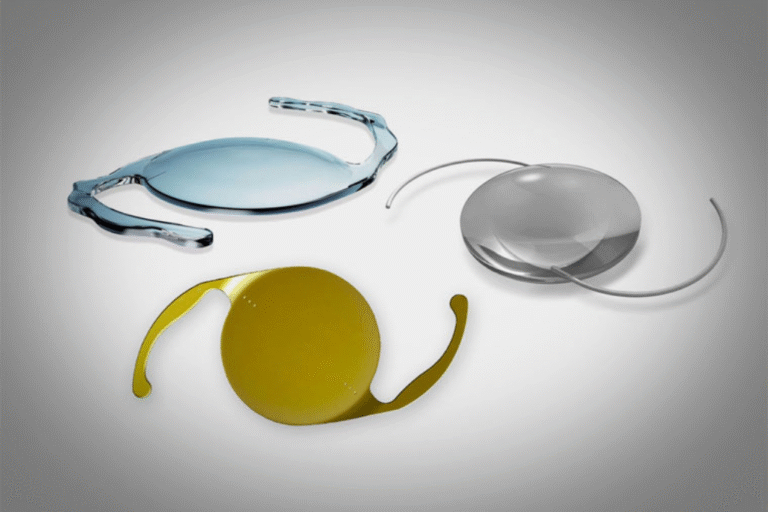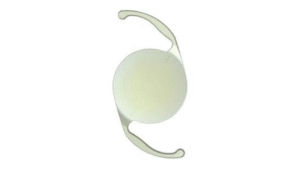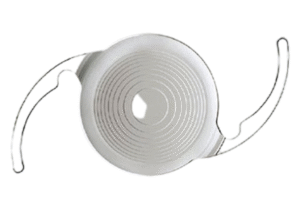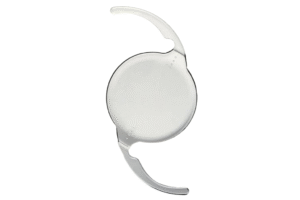Choosing the right lens for cataract surgery: A complete guide

Cataract surgery is a transformative procedure that restores clear vision by replacing the eye’s clouded natural lens with an artificial one. A crucial part of this process is selecting the right intraocular lens (IOL)—a decision that can greatly influence your vision and quality of life after surgery.
This comprehensive guide will help you understand the different types of IOLs available and how to choose the one that best suits your visual needs and lifestyle.
Table of Contents
ToggleWhat is an Intraocular Lens (IOL)?
An intraocular lens (IOL) is a synthetic, clear lens implanted in the eye during cataract surgery to replace the natural lens that has become cloudy. These lenses come in different types, each designed to serve specific vision needs.
Why does choosing the right IOL matter?
Choosing the right lens affects your:
- Clarity of vision.
- Dependence on glasses.
- Comfort during daily activities.
- Overall satisfaction post-surgery.
The best lens for you depends on your eye health, lifestyle, daily visual needs, and budget.
Types of Intraocular Lenses (IOLs)
1. Monofocal lenses

Best for: Distance vision
- Provide clear vision at one set distance. (usually far)
- You may still need reading glasses for near or intermediate tasks.
- Most commonly used lens type.
- Covered under many insurance plans.
Ideal for: People who are comfortable using glasses for near tasks
2. Multifocal lenses

Best for: Near, intermediate, and distance vision.
- Designed with multiple focal points.
- Reduces or eliminates dependence on glasses.
- May cause glare or halos at night in some patients.
Ideal for: Active individuals who want freedom from glasses.
3. Extended Depth of Focus (EDOF) lenses

Best for: Intermediate and distance vision.
- Smooth transition between vision zones.
- Fewer side effects like glare or halos compared to multifocal lenses.
- May still require reading glasses for small print.
Ideal for: Those who use computers frequently or do intermediate-range tasks.
4. Toric lenses

Best for: Patients with astigmatism.
- Correct both cataracts and astigmatism.
- Provide sharper vision without needing additional eye surgery.
- Can be combined with monofocal or multifocal technologies.
Ideal for: Anyone with significant astigmatism.
5. Light-Adjustable Lenses (LAL)

Best for: Personalized vision correction after surgery.
- Adjusted with UV light after the surgery for fine-tuning.
- Offers customization based on post-operative vision needs.
- Requires multiple visits for adjustments.
Ideal for: Perfection-seekers and patients unsure of pre-surgery preferences.
Factors to consider when choosing your lens
- Your daily activities
Are you a reader, driver, or someone who works on computers all day?
- If you prioritize distance vision (e.g., driving), a monofocal IOL set for distance may be ideal.
- For frequent reading or screen work, consider multifocal or extended depth of focus (EDOF) IOLs for better near and intermediate vision.
- Glasses independence
Do you want to be glasses-free or are you okay wearing them occasionally?
- For maximum glasses independence, multifocal or trifocal IOLs are recommended.
- If you don’t mind using glasses occasionally, monofocal IOLs offer excellent clarity at one distance.
- Budget and Insurance coverage – Advanced lenses may involve out-of-pocket costs.
- Monofocal IOLs are generally covered by insurance and are the most affordable option.
- Multifocal, EDOF, and toric IOLs typically require additional payment but offer more visual freedom.
- Eye conditions
Conditions like astigmatism, macular degeneration, or dry eyes may affect your options.
For astigmatism, a toric IOL helps correct vision without needing glasses.
For macular degeneration or glaucoma, a monofocal IOL is usually safer and more effective.
Dry eye may limit the effectiveness of multifocal IOLs, so monofocal or EDOF IOLs may be preferred.
- Doctor’s recommendation
Our experienced ophthalmologists will guide you based on detailed preoperative tests.
After evaluating your eye health, lifestyle, and goals, your doctor may recommend the most suitable lens type, balancing visual outcomes and safety.
What to expect during the lens selection process?
- Comprehensive eye exam.
- Lifestyle and vision goals discussion.
- Measurements of your eye shape and focusing power.
- Counseling about lens options, pros and cons.
- Final decision based on medical advice and personal preferences.
Why choose Krisha Eye Hospital?
- Advanced diagnostic equipment for precise eye measurements.
- Experienced cataract surgeons with a track record of successful outcomes.
- Customized lens counseling based on your individual needs.
- Transparent pricing with no hidden costs.
- Post-surgery support to ensure smooth recovery and satisfaction.
Conclusion
Selecting the right lens for cataract surgery is a decision that impacts your long-term vision and quality of life. With expert guidance from the team at Krisha Eye Hospital in Ahmedabad, you can confidently choose a lens that aligns with your lifestyle and visual goals. Whether you’re looking for clarity at all distances or minimal dependence on glasses, the best cataract surgeon in Ahmedabad can help you make an informed choice.
Ready to take the next step toward clearer vision?
Book your consultation today with Krisha Eye Hospital and let us help you see the world better.
Author bio
Dr. Dhwani Maheshwari, an esteemed ophthalmologist with over 10 years of experience, leads Krisha Eye hospital in Ahmedabad with a commitment to advanced, patient-centered eye care.
Specializing in cataract and refractive surgery, Dr. Maheshwari has performed more than a thousand successful surgeries. Her expertise lies in phacoemulsification, a technique recognized for its precision in cataract treatment.
Dr. Maheshwari’s educational journey includes an MBBS from Smt. NHL MMC, a DOMS from M & J Institute of Ophthalmology, and a DNB in Ophthalmology from Mahatme Eye Bank Eye Hospital, Nagpur. She also completed a fellowship in phacoemulsification at Porecha Blindness Trust Hospital, further enhancing her surgical skills. In addition to her work at Krisha Eye Hospital, Dr. Maheshwari serves as a consultant ophthalmologist at Northstar Diagnostic Centre.
Under her leadership, Krisha Eye Hospital aims to bring all superspecialties under one roof, offering comprehensive eye care solutions for all vision needs.
FAQs
No, once an IOL is implanted during surgery, it is not typically replaced unless there’s a complication. Therefore, choosing the right lens before surgery is crucial.
The procedure is the same regardless of the lens type. Premium lenses do not make the surgery more painful or riskier when performed by a qualified surgeon.
Most patients adjust within a few days to a few weeks. However, for multifocal or EDOF lenses, the brain may take slightly longer to adapt.
Yes, this is called “blended vision” or “mix-and-match” and can help balance visual clarity for various distances, depending on your visual goals.
Yes, this is called “blended vision” or “mix-and-match” and can help balance visual clarity for various distances, depending on your visual goals.
Yes, intraocular lenses are designed to be permanent and typically last for the rest of your life.
Yes. Certain conditions like diabetic retinopathy or macular degeneration may limit your options and affect outcomes with advanced lenses.
Not usually. However, in rare cases of lens displacement, infection, or incorrect power, a lens exchange may be required.
Yes. Most people can travel within a few days of surgery, provided they follow the surgeon’s post-op care instructions and avoid strenuous activities.
